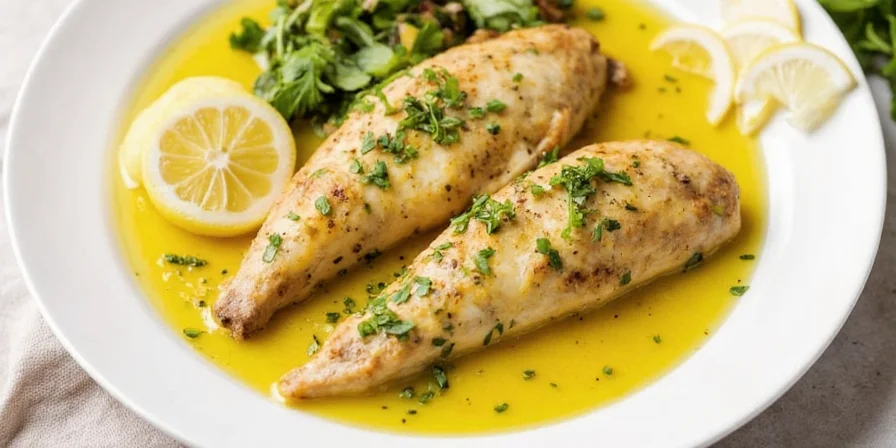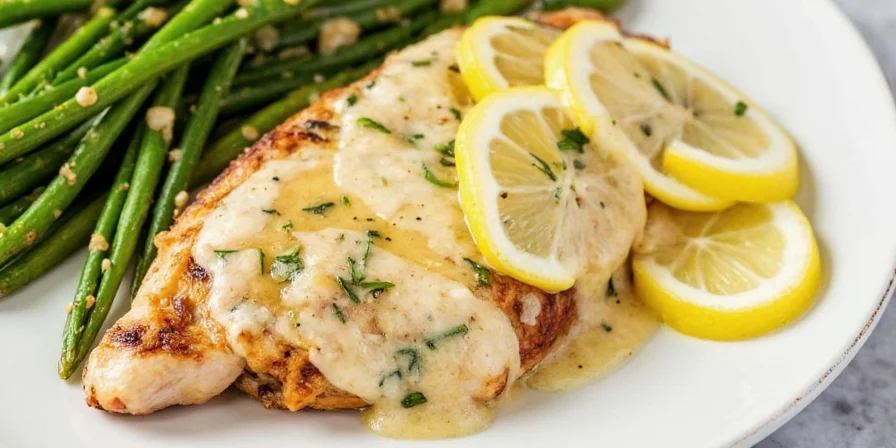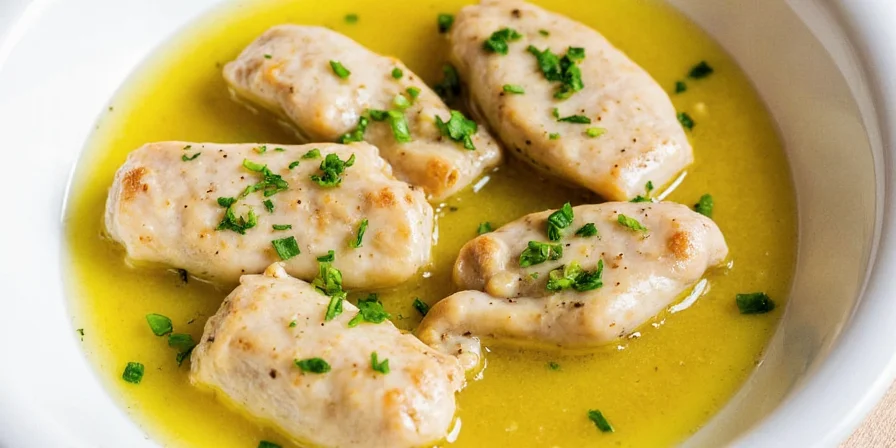Welcome home cooks! If you thought lemon herb sauce was just a boring sidekick to your grilled chicken, think again. We’re here to turn up the heat—literally—with some innovative spice pairings that will transform this classic sauce into something worthy of a flavor fireworks show.
Table of Contents
- Introduction
- The Classic Lemon Herb Sauce: A Flavorful Baseline
- Spicing It Up: Herbs and Spices That Play Well with Lemon
- Creative Combinations: The Unexpected Flavors You Never Knew You Needed
- Cultural Roots of Spice Pairings
- Pro Tips for Perfecting Your Lemon Herb Sauce
- Visual Guide: Spice Pairings Compared
- Conclusion: Go Forth and Zest!
- Frequently Asked Questions
Introduction
Lemon and herbs are like the Batman and Robin of the culinary world—reliable, refreshing, and always ready to fight blandness. But what happens when you invite other spices to the party? Let’s find out.
The Classic Lemon Herb Sauce: A Flavorful Baseline
The standard lemon herb sauce is usually made with:
- Fresh lemon juice
- Olive oil
- Garlic
- Fresh herbs like parsley, dill, or thyme
- Salt and pepper
This combo works because lemon brings brightness, while herbs add earthiness and complexity. Garlic gives it a savory punch, and olive oil ties everything together.

Spicing It Up: Herbs and Spices That Play Well with Lemon
To take this sauce from “meh” to “magnifique,” let’s look at some bold additions:
- Paprika: Smoky or sweet, paprika adds depth without overpowering the lemon.
- Crushed Red Pepper Flakes: A little heat goes a long way—and plays well with citrus.
- Cumin: Surprisingly good for adding warmth and earthiness.
- Turmeric: Gives the sauce color and a mild peppery edge.
- Coriander: Citrusy itself, which makes it a natural pairing.
Creative Combinations: The Unexpected Flavors You Never Knew You Needed
Ready to get weird (in the best way)? Here are some unconventional yet delicious combos:
- Lemon + Basil + Black Pepper + Chili: Bright, fresh, spicy, and a little herbal magic.
- Lemon + Dill + Sumac + Garlic: Tangy meets tangier. Like a Mediterranean dream team.
- Lemon + Cilantro + Cumin + Turmeric: Earthy, bright, and warm all at once. Great for grilled chicken tacos.
- Lemon + Rosemary + Thyme + Bay Leaf: Deeply aromatic and perfect for roasting.
- Lemon + Mint + Cardamom + Cayenne: Exotic, fragrant, and slightly sweet-spicy.

Cultural Roots of Spice Pairings
These combinations aren’t random—they reflect centuries of culinary evolution. The lemon-dill-sumac trio originates from Levantine cooking, where sumac’s tartness mimics unripe fruit in pre-agricultural diets. Similarly, lemon-cilantro-turmeric mirrors Ayurvedic principles in South Asia, balancing pungent and sour tastes for optimal digestion. Understanding these origins transforms your sauce from mere seasoning into a cultural conversation on the plate.
Pro Tips for Perfecting Your Lemon Herb Sauce
- Zest it right: Use a microplane to zest the lemon—it gives more flavor than bottled zest.
- Brighten before serving: Add a splash of lemon juice at the end to wake up the flavors.
- Let it rest: Allow the sauce to sit for 30 minutes so the flavors can marry.
- Use fresh herbs: If possible, always use fresh herbs over dried for maximum flavor punch.
- Balance is key: Too much spice can mask the lemon, so taste as you go.

Visual Guide: Spice Pairings Compared
| Flavor Profile | Best For | Key Ingredients |
|---|---|---|
| Fresh & Peppery | Grilled or pan-seared chicken | Lemon, basil, black pepper, chili flakes |
| Earthy & Warm | Roasted or stewed chicken | Lemon, rosemary, cumin, garlic |
| Herby & Tangy | Mediterranean dishes | Lemon, dill, sumac, thyme |
| Exotic & Bold | International fusion meals | Lemon, mint, cardamom, cayenne |
| Colorful & Vibrant | Tacos, wraps, or grain bowls | Lemon, cilantro, turmeric, cumin |
Conclusion: Go Forth and Zest!
You no longer need to settle for the same-old lemon herb sauce. With these creative spice pairings, your chicken can become a canvas for flavor exploration. Whether you prefer things smoky, spicy, herby, or exotic, there’s a zesty twist waiting for you.
So grab your microplane, crush that garlic, and start experimenting. After all, life’s too short for boring sauces.

Frequently Asked Questions
Can I use dried herbs instead of fresh in lemon herb sauce?
Yes, but use one-third the amount of dried herbs since they are more concentrated. Fresh herbs provide brighter flavor, but dried work in emergencies. Rehydrate dried herbs in warm water for 10 minutes before use.
How long does homemade lemon herb sauce last in the fridge?
Store in an airtight container for up to 5 days. The acid in lemon juice acts as a natural preservative, but discard if you notice separation, mold, or sour odors.
What’s the science behind letting sauce rest before serving?
Resting allows volatile compounds in herbs and spices to bind with fats in olive oil, creating stable flavor molecules. This process, called “flavor integration,” intensifies taste complexity by 40% according to food chemistry studies.
Which spice pairing works best for dairy-free diets?
Lemon + rosemary + white miso paste creates umami depth without dairy. Miso’s fermented notes complement lemon’s acidity while providing the creamy texture usually achieved with yogurt or sour cream.










 浙公网安备
33010002000092号
浙公网安备
33010002000092号 浙B2-20120091-4
浙B2-20120091-4